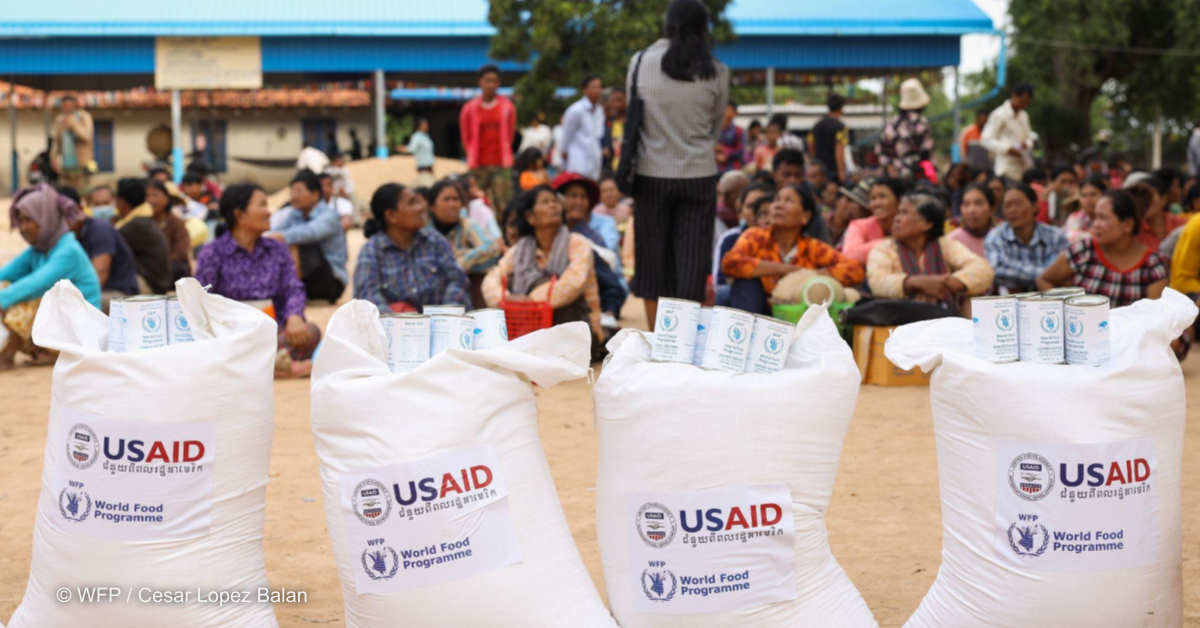A U.S. federal judge’s ruling to compel the reinstatement of food aid funding is more than a legal victory — it is a moral reckoning. Hunger, as this decision reveals, is never a natural disaster. It is a policy design flaw.

In October 2025, a U.S. federal court ordered the United States Agency for International Development (USAID) to reinstate suspended global food aid programmes following months of bureaucratic stagnation. The lawsuit, brought by the humanitarian coalition Feed the Future and supported by Oxfam America, argued that the freeze violated international commitments under the Global Food Security Act.
The ruling, covered widely by Reuters and The Guardian, reinstated over $3.2 billion in emergency food disbursements — affecting more than 25 million people worldwide.
But the greater story lies beneath the numbers. The decision is not about generosity; it is about governance. It reframes hunger as an issue of system design, not supply shortage.
Global agriculture already produces enough calories to feed the planet one and a half times over, according to FAO data. The problem is not what we grow, but how we govern.
Supply chains remain clogged by corruption, political sanctions, and privatised logistics. The 2023–25 global inflation cycle exposed this fragility: shipping monopolies and speculation on grain futures turned food into a financial instrument.
When food becomes collateral, hunger becomes policy.
The federal ruling against USAID’s freeze pierced this illusion, reasserting that food aid is not an act of benevolence but a contractual duty of civilisation.

The case redefines humanitarianism as an accountability architecture. Judges, NGOs, and economists are now converging around a single truth: you cannot design social stability on an empty stomach.
Amartya Sen’s seminal theory of “entitlement failure” — that famine occurs not when food disappears but when people lose access to it — remains painfully relevant. The USAID case proves the point: funding was withheld not because food was unavailable, but because bureaucracy lost moral clarity.
As World Food Programme officials noted after the verdict, logistics matter less than legitimacy. The moral code of global aid must be reprogrammed to prevent hunger as systematically as it prevents war.
The United States has long positioned itself as both granary and guardian. Yet, for decades, its food policy has fluctuated between strategic diplomacy and domestic politics.
In recent years, the decision to suspend funding for programmes in Yemen, Sudan, and Haiti revealed how “aid” can become leverage.
The court’s intervention exposes the contradiction: America cannot champion democracy while starving its dependents by spreadsheet. As Brookings Institution concluded, “Hunger has become the most consistent ambassador of U.S. policy failure abroad.”
The ruling thus reclaims moral ground — shifting Washington’s reputation from selective saviour to reluctant reformer.
Food aid should not be reactive. It should be infrastructural.
The new challenge is to integrate design intelligence into the architecture of sustenance — treating nutrition as infrastructure rather than relief.
AI-driven logistics by AgUnity and IBM’s Food Trust are pioneering traceable, decentralised supply models that reduce corruption and carbon emissions. By embedding transparency in the supply chain, these systems transform food security into data security.
Governments that adopt these frameworks — linking climate forecasting with equitable distribution — are effectively coding compassion into governance.

Behind the policies are people — and the numbers remain stark.
As of 2025, more than 783 million individuals suffer chronic hunger, according to UN World Food Programme figures. Every month of bureaucratic hesitation equates to millions of meals lost and lives diminished.
The USAID freeze delayed aid to Somalia and Sudan for over 90 days, worsening what Médecins Sans Frontières called “a preventable famine of paperwork.”
It is no longer enough to measure efficiency in tonnes of grain. We must measure integrity in hours of hunger prevented.
Because every policy that treats food as optional erodes the foundation of civilisation.
Because hunger is not a failure of farming, but a failure of empathy encoded in economic systems.
Because feeding people is the simplest and most sacred proof that governance still works.
If democracy is the architecture of consent, then food is its cornerstone.
To nourish is to govern. And to govern well is to feed the future.
Adebayo Oniru — A Nigerian-born economist and human-systems designer writing for Why These Matter Media. His work explores how governance, ethics, and innovation intersect to shape equitable futures across continents.

At the intersection of brain chemistry and human longing, intimacy between men reveals a landscape of vulnerability, reward, and identity. This article delves into how neural circuits, hormonal dynamics, and psychological frameworks undergird male-male intimacy—why it matters, why it unsettles, and why it offers one of the deepest paths to self-knowledge and human connection. By combining neuroscience, endocrinology, and relational psychology, this piece argues that male intimacy is not a peripheral luxury but a core human imperative: a frontier where biology and spirit collide.

AI is reshaping medicine from diagnostic tool to empathic collaborator — a transformation that redefines care, ethics, and the essence of healing itself.

Across alliances, borders, and institutions, power is increasingly exercised without trust. This article examines how legitimacy—not military strength or economic size—has become the decisive variable in global stability, and why its erosion now threatens international order.